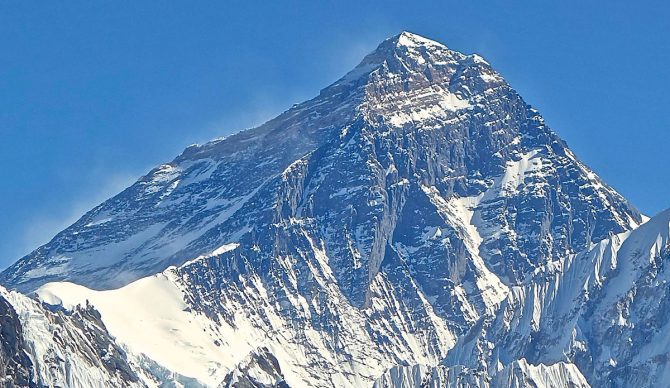The Nepalese army has embarked on annual clean-ups to Mount Everest, Nuptse, and Lhotse since 2019. It’s estimated they’ve removed an astonishing amount of trash and even bodies from the Himalayan peaks over those five years: 119 tons of trash and 14 human corpses. Still, there’s believed to be more than another 50 tons of trash and more than 200 bodies to go.
The most recent cleanup took 55 days and returned more than 11 tons of trash, four human corpses, and one skeleton between the three peaks.
All of these numbers can be pretty staggering, of course. Logic would tell anybody that circling back to clean waste and recover human bodies after they’ve all been left behind is a fool’s errand. So, according to the BBC, the Nepalese government is implementing steps that can mitigate the problem at the source. The outlet is reporting a drop in the number of permits issued to climbers this past year, from 478 last year down to 421 for this year. They do attribute the drop to outside factors around the globe for now but also say that number will go down more moving forward after Nepal’s Supreme Court ordered a limit on permits in May.
Although they haven’t set a limit yet, Nepal’s Department of Tourism director of mountaineering Rakesh Gurung told the BBC that the government will coordinate with “experts” to determine a safe number of climbers.
“Without the scientific study, it can’t be said what will be the perfect number for Mount Everest,” he told them.
A major challenge lately has been the large backups that occur near the summit, where climbers find themselves in long queues just to complete their expedition. The long waits contribute to the overall danger for each climber and base camps have become de facto junkyards over the years. Even human poop poses a threat on Everest, where people are now required to bring their waste down with them as opposed to leaving it behind and risking getting other climbers sick.
“Our mountains have begun to stink,” Mingma Sherpa, chairman of Pasang Lhamu rural municipality told the BBC earlier this year. “We are getting complaints that human stools are visible on rocks and some climbers are falling sick. This is not acceptable and erodes our image.”


